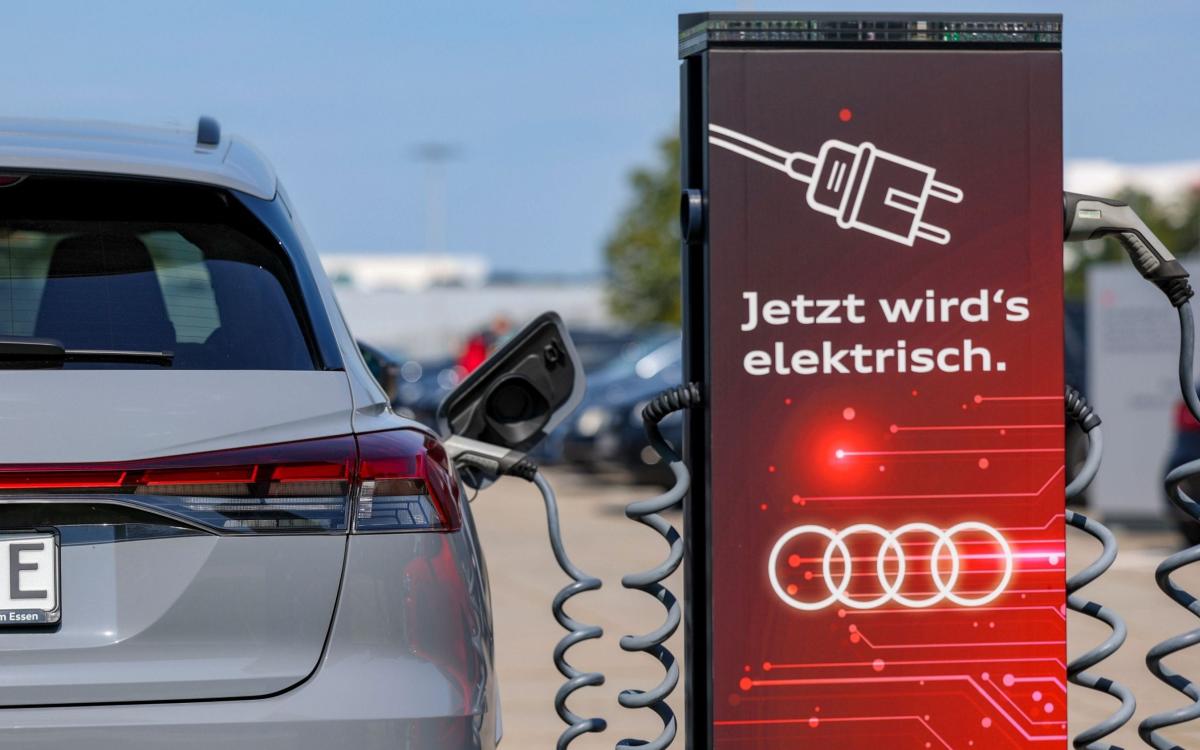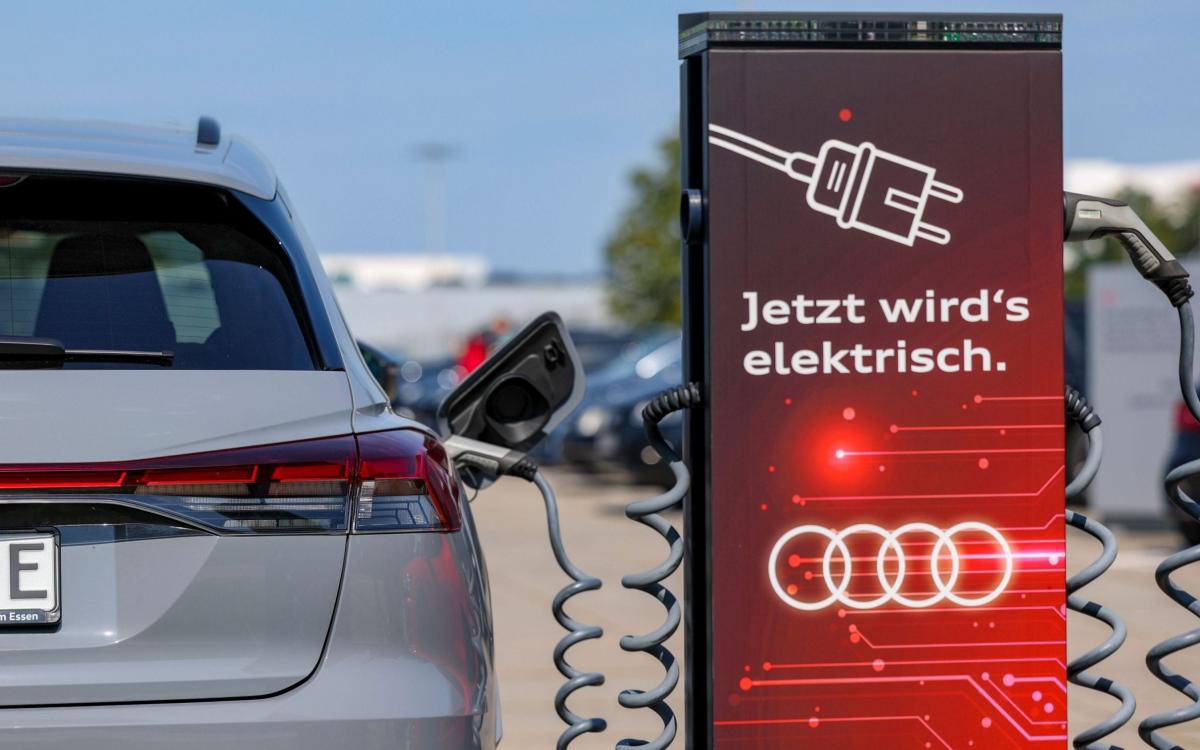
Germany has suffered a “spectacular” drop in electric car sales as the European Union faces growing calls to delay its net zero vehicle targets.
The European Automobile Manufacturers’ Association (ACEA) said sales of new battery-powered electric vehicles (EV) in Germany plunged by nearly 70pc to 27,024 in August.
In France, the EU’s second largest market for battery electric vehicles behind Germany, deliveries fell by 33pc to 13,143.
ACEA said “the spectacular drop” in both countries meant that only 92,627 battery electric vehicles were registered across Europe last month, a fall of 43.9pc compared to a year earlier. This drove a wider 18pc drop in new car sales across the EU.
The collapse in EV sales comes amid concerns about their range, high prices and the lack of charging infrastructure across the EU.
Felipe Munoz, a global automotive analyst at JATO Dynamics, said: “The reality is that whether you look at business or private, electric vehicles do not convince yet.”
Mr Munoz added that Germany’s EV slump was fuelled by economic uncertainty and the EU’s new tariffs on China-made electric cars, which has pushed up prices at the more affordable end of the market.
He predicted there will be “more problems” for Germany in the coming months amid waning enthusiasm for EVs among corporate fleets.
Mr Munoz said: “I don’t think we will see growth. I’m not saying that we will continue to see these big drops as we just saw in August because sooner or later measures will be taken by the government because of strong lobbying from carmarkers in Germany.”
Earlier this month Volkswagen warned it may have to close a factory in its home market in the face of slumping sales. The car maker has also scrapped a decades-old promise to protect workers’ jobs, with fears as many as 15,000 roles could be at risk.
The EV sales crisis prompted the ACEA to call for “urgent action” to address new EU net zero car sales rules that will leave European electric car manufacturers at risk of hefty fines.
The European Commission, which creates and enforces EU law, is preparing to introduce new rules for car and van makers designed to slash carbon emissions and encourage the adoption of electric vehicles.
The new rules require all new European cars to produce no more than 93.6g of CO2 per kilometre. Brands will be fined €95 for each gram of CO2 per kilometre over the limit, multiplied by the number of cars sold.
The ACEA said the “continual downward trajectory” of EV sales in the bloc meant manufacturers would be at risk of multi-billion euro fines and said the new rules needed a rethink. It warned that demand for EVs was still well below the level needed for the EU’s new vehicle emissions rules to work effectively.
“We are missing crucial conditions to reach the necessary boost in production and adoption of zero-emission vehicles: charging and hydrogen refilling infrastructure, as well as a competitive manufacturing environment, affordable green energy, purchase and tax incentives, and a secure supply of raw materials, hydrogen and batteries,” the ACEA said.
The Brussels-based industry body said that 902,011 battery-electric cars were registered from January to August, representing just 12.6pc of the market.
The ACEA urged the European Union to delay new carbon emissions targets and instead take “urgent and meaningful action” to reverse the sales decline.
Top carmakers including Volkswagen, BMW and Renault have already suggested pushing back the targets, which would see companies fined for failing to comply.
Meanwhile, Italy urged the EU to pause its “absurd” plans to ban petrol cars by 2035 amid concerns the policy risks triggering the automotive industry’s collapse.
EMEA Tribune is not involved in this news article, it is taken from our partners and or from the News Agencies. Copyright and Credit go to the News Agencies, email news@emeatribune.com Follow our WhatsApp verified Channel




